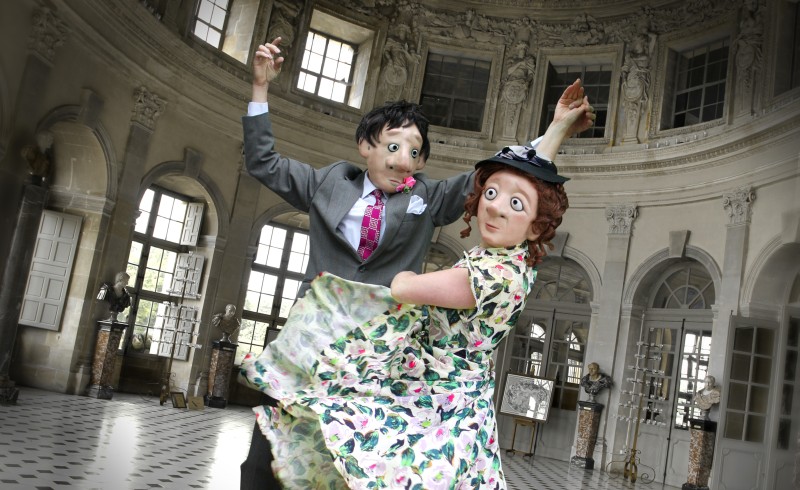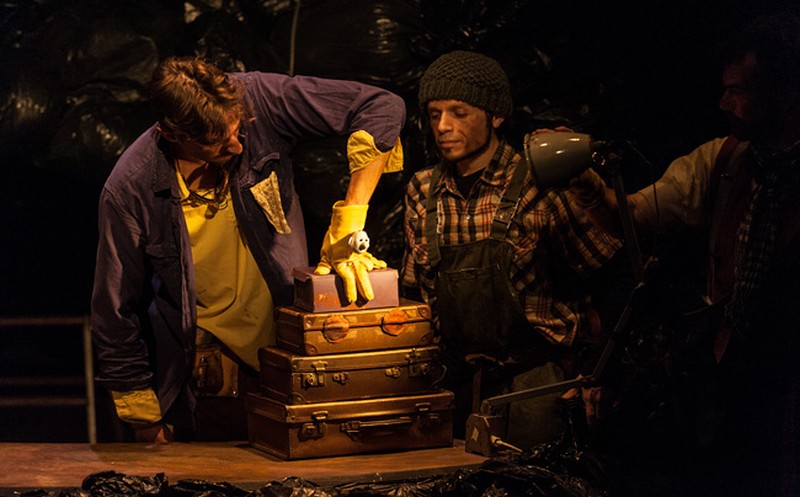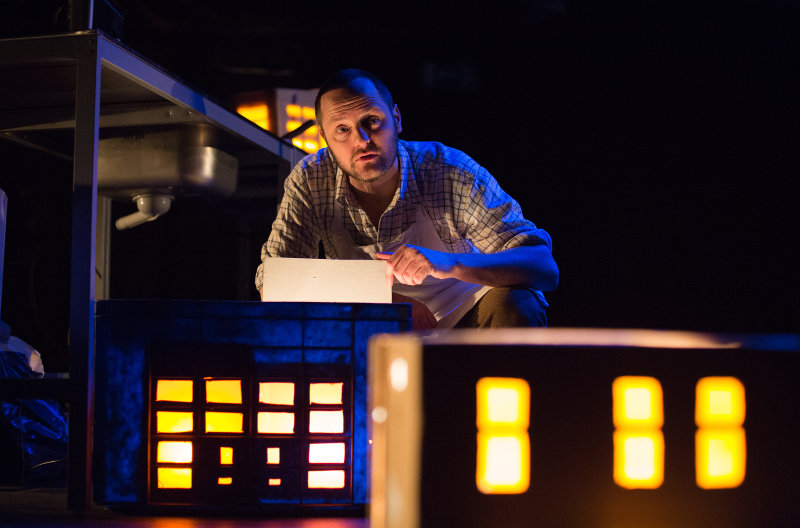 Vamos is a young company working with an old craft, using full-mask performers, reminiscent of Trestle or Famile Flöz. In Finding Joy four of them deliver an array of non-speaking characters to tell the story of an elderly woman in the early stages of dementia, the frustrations of both her home life and her grim stay in hospital, and her growing redeeming relationship with her grandson and his teenage friends. In classic visual theatre style, it also dips back into her past to share key life events.
Vamos is a young company working with an old craft, using full-mask performers, reminiscent of Trestle or Famile Flöz. In Finding Joy four of them deliver an array of non-speaking characters to tell the story of an elderly woman in the early stages of dementia, the frustrations of both her home life and her grim stay in hospital, and her growing redeeming relationship with her grandson and his teenage friends. In classic visual theatre style, it also dips back into her past to share key life events.
It feels slightly old-fashioned in part because (even though leavened with well-chosen additions of puppetry, of film projection) it is a sustained piece of a performance craft – the mask work is not an effect, a tool, it’s the core of the piece. This wordless form relies on a constant stream of recognitions of action from the audience, identifying what characters are doing, and what they are feeling, and what they are communicating to us, and to each other, and why. When it works well, as it does here, it effectively delivers a flow of pleasurable rewards, of ‘oh yes, that’s what she’s doing’ moments, and it’s completely engaging. Pulling it off demands a host of performance skills – the mask classically demands full and precise physicality for each different character, alongside a serious clown openness to audience that takes in both high comedy and pathos; and precision timing is essential.
But I found myself wondering, in this show, whether the form might be restrictive of the breadth of content that it can embrace. There were moments where what we were shown seemed really well-observed: I was sitting in front of a row of NHS employees who collapsed as one with laughter on the swaggering entrance of the self-important senior consultant on his ward rounds. Clearly something particularly identifiable there. But other characters felt a bit generic; we’re perhaps always going to more quickly latch onto stock teenagers than the complex mess of a group of real ones. Particularly after the interval, the same seemed to be true of the narrative content; there was rather a run of slightly-implausible heart-warming set-pieces, that hit the recognition spot more via Hollywood than reality. The show seemed to demand an increasingly sweet tooth; apart from one climactic anxious moment, the dementia symptoms kept pretty much within the spectrum of charming minor frustrations, which is not, I am sure, the full experience.
But ultimately this is the sweet story Vamos have chosen to tell, and they execute it absolutely flawlessly. The Warren, with its raised stage set well back from the seating bank, is not an easy space for detailed, intimate theatre, but they overcome this effortlessly. The numerous characters are all fully embodied and precisely identifiable; every beat is crisp and clear, the storytelling takes new turns and injects little surprises, and switches from the comic to the emotive, exactly when needed. This is unpretentious and very well made theatre.


